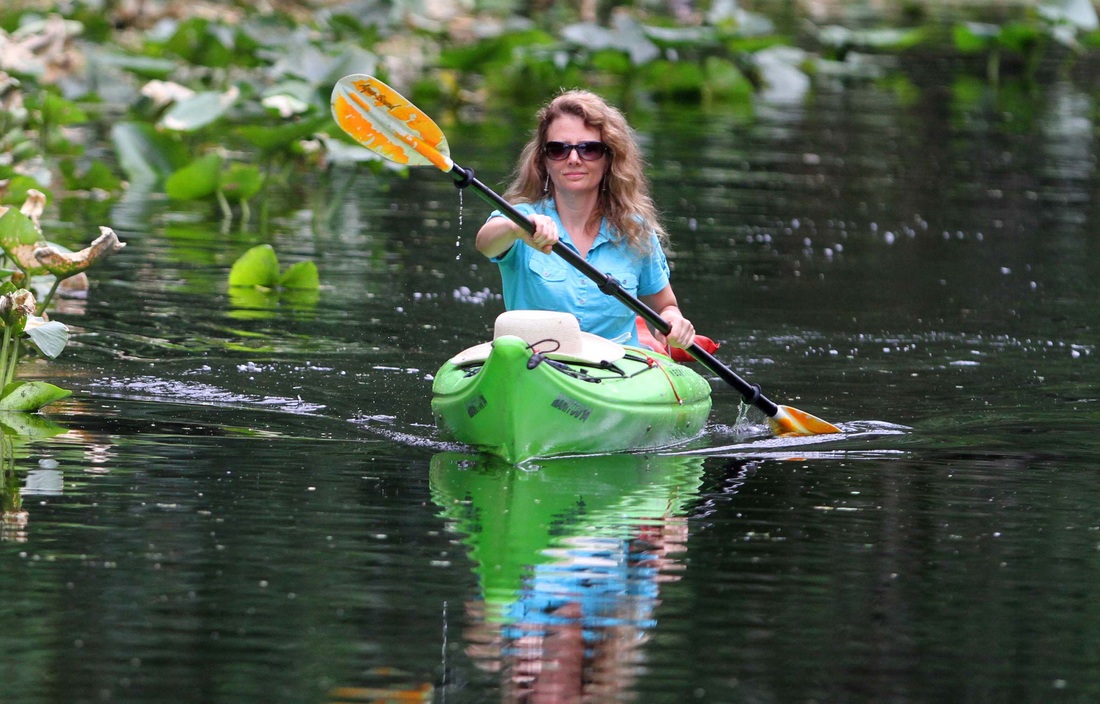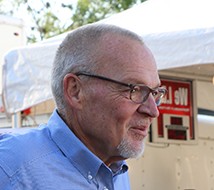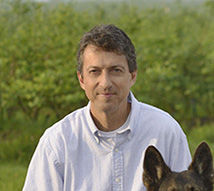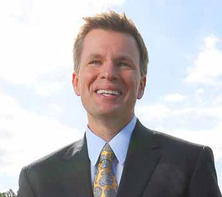the view from lake county
|
“You have a huge opportunity to do a lot of education and to effect a huge amount of change when you are in an area that is not really immersed in the ideas of sustainability.” |
Michelle Thatcher, CEO and co-founder of the over 1000 member U.S. Green Chamber of Commerce grew up in one of the “greenest” communities in Washington State. Now based in the very different social and political landscape of Central Florida, she has crafted an outreach program for the Green Chamber that is carefully tailored to a business community that may not always be initially receptive to its message. Michelle also lauds U.S. Green Chamber of Commerce Member First Green Bank’s inspired approach to educate and influence its clients and community, and talks about how that strategy is beginning to gain traction in Lake County and beyond.
When you are trying to convince a business community that has had little exposure to holistic-value concepts to adopt practices that are aligned with goals beyond financial profit, you have your work cut out for you. However, Michelle Thatcher actually sees an upside to this challenge. “You have a huge opportunity to do a lot of education and effect a huge amount of change when you are in an area that is not really immersed in the ideas of sustainability,” she says. However, when the Chamber holds events in Central Florida it take a completely different approach it does when events are held at the organization’s national headquarters in San Diego. “In San Diego people have broad access to all kinds of educational and networking events and also advocacy and outreach,” Michelle reports. “Their clients are well versed and committed to the green movement. You don’t have to convince them of the ‘why,’ you just have to go out and say we have some solutions.” In Central Florida, on the other hand, the outreach leads with a discussion of the economic benefits of sustainable practices. “Then we say that you also get to feel good about knowing that there are environmental and social results from that sustainability practice you are implementing,” Michelle notes.
|
“People don't want to be told what to do, they want to be shown, and First Green Bank has done an excellent job of showing." |
When the Chamber held its grand launch event in Orlando in 2011, representatives from 10 large corporations, including Costco, Staples, Lockheed Martin, Skanska, AAA, Honeywell, Darden, and Waste Management, were invited to talk about their economic success in implementing sustainability practices. “It was such a new concept to some people,” Michelle recalls. “They came up to us and said, ‘I heard the word sustainability before, but I didn’t fully get it until I heard it out of the mouths of these national corporations. They are not just saving thousands of dollars but billions by switching up their practices.’ Our job then was just to talk about making sure the local businesses implemented the practices so they would be here tomorrow.”
“It is all in how you present your case,” Michelle goes on to say, noting her admiration for First Green Bank’s success in inspiring people to become part of what they are now calling a “regenerative movement.” “It is not about finger pointing,” she says. “People don't want to be told what to do, they want to be shown, and First Green Bank has done an excellent job of showing—for example with their employee low- or no-interest loans for hybrid or fuel efficient vehicles where the employees get paid by the bank for wrapping their car in the First Green Bank logo. And when people walk into the Mt. Dora branch they are instantly engaged in this really beautiful, feel good space. They see that not only that the building good for the environment, but an extra effort was made to preserve the property by not cutting down all the trees. And they see that the few trees that were cut were repurposed, including a beautiful conference table.” Now that the bank is expanding into Orlando, Winter Park, and Ormond Beach, it has begun to engage with a receptive entrepreneurial community and is likely to find more opportunities to influence, early on, the practices of these startups, she reports. |
And while up until recently climate change was not a topic to raise at a Central Florida business mixer, that too has changed.
|
Although the politics of Central Florida have been a challenge for the Green Chamber, Michelle thinks that the tide is turning: “It has only been a couple of years since we had our Southeast regional grand opening and I would say things have moved probably at least 25 percent in the right direction. Orlando has a new green program and we are making sure we partner with them. There is a lot more going on in the food movement and, regardless of the abysmal incentives, solar is growing exponentially in the state.”
And while up until recently climate change was not a topic that would be prudent to raise at a Central Florida business mixer, that too has changed. Says Michelle: “We can talk about it now, and how it affects businesses in the community and even promote that a bit more in social media. Once you get the early adopters to come on board the momentum builds.” |
more on the view from lake county
Lake County Commissioner Welton Cadwell Reflects on an Economy in Transition
To begin our Lake County “story of place” we speak with Welton Cadwell, a 23-year veteran of the Lake County Board of Commissioners. Today, as Florida’s real estate market reheats and memories of a pre-recession era of unchecked development remain fresh, thoughtful Lake County community leaders like Cadwell are hoping to chart a balanced, managed growth course for the county that ensures that it adapts to systemic challenges in a way that secures its long-term health and well-being.
READ MORE |
An Organic Farmer Tells His Cautionary Tale
Hugh Kent, owner of King Grove Organic Farm, says that he is deeply troubled by changes in the political and economic landscape in Lake County and Central Florida that are reversing the innovative land-use codes that so many local advocates worked so hard to put in place. “We were able to do some really good things with zoning before the recession,” he reports. “But at the beginning of the economic downturn, when people stopped hearing backup signals on earth moving equipment, they just forgot about what the rampant development was doing to the land around here."
|
Economic Growth Director Robert Chandler’s Diversification StrategyRobert Chandler was the person who was going to leave Lake County where he grew up and never come back. But after a sojourn to North Carolina where he attended Davidson College, he married a Lake County native. Although they initially settled in Orlando, they returned to Lake four years ago when Robert accepted a job as Lake County’s coordinator of economic development and tourism and in March 2015 was named the county’s first ever Director of Economic Growth. Robert has never regretted the decision.
READ MORE |





